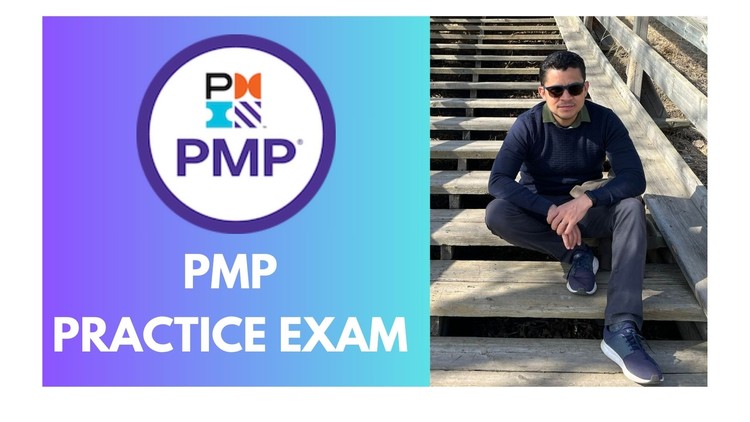What
You’ll Learn
You’ll Learn
- 1.\tMastering People Domain
- 2.\tProcess Domain Proficiency
- 3.\tBusiness Environment Awareness
- 4.\tAgile Methodology Competence
- 5.\tPredictive/Hybrid Methodology Mastery
- 6.\tDetailed Knowledge of Numerical Problem Solving
- 7.\tSituational/Real Scenario Analysis
- 8.\tComprehensive Exam Format Understanding
- 9.\tEffective Communication Skills in Project Management
- 10.\tRisk Management Proficiency
- 11.\tIntegration of Agile and Traditional Approaches
- 12.\tApplication of Project Management Tools
Requirements
- No requirements
Description
A PMP certification mock exam course is designed to prepare students for the actual PMP exam by simulating exam-like conditions and providing practice questions like what they might encounter on the real exam. Preparing for the Project Management Professional (PMP) certification can be challenging, and many candidates encounter common pitfalls. Awareness of these pitfalls can help you avoid them and improve your chances of success. Here are some common pitfalls to watch out for:
· Underestimating the Exam: Some candidates underestimate the complexity and depth of the PMP exam. It is a comprehensive exam that requires a solid understanding of project management principles and processes. Failing to acknowledge the difficulty of the exam may lead to inadequate preparation.
· Overlooking Practice Exams: Practice exams are essential for evaluating your knowledge and understanding of the concepts. Some candidates neglect taking mock exams or practice questions, which can prevent them from identifying weak areas and improving their test-taking skills.
· Neglecting Time Management: Time management during the exam is critical. Some candidates spend too much time on individual questions, leaving them with insufficient time for other questions. Practising time management during mock exams can help address this issue.
This mock exam course may include practice tests and exercises that simulate the actual PMP exam, allowing students to assess their knowledge and readiness for the certification exam. Additionally, the course might guide test-taking strategies and tips for managing time effectively during the real exam.
learners can expect to achieve after completing the PMP certification exam simulator on the Udemy platform:
-
Mastering People Domain (42%):
-
Understand and apply interpersonal and team skills for effective project management.
-
Analyze and implement communication strategies to enhance team collaboration and stakeholder engagement.
-
-
Process Domain Proficiency (50%):
-
Demonstrate a comprehensive understanding of project management processes and their interdependencies.
-
Apply best practices in project initiation, planning, execution, monitoring, controlling, and closing.
-
-
Business Environment Awareness (8%):
-
Recognize and assess external factors affecting project success, such as organizational culture, governance, and compliance.
-
-
Agile Methodology Competence (50%):
-
Gain proficiency in Agile principles and practices relevant to project management.
-
Apply Agile tools and techniques in project environments for increased adaptability and responsiveness.
-
-
Predictive/Hybrid Methodology Mastery (50%):
-
Demonstrate a thorough understanding of predictive and hybrid project management methodologies.
-
Evaluate when and how to apply predictive or hybrid approaches based on project requirements.
-
-
Detailed Knowledge of Numerical Problem Solving:
-
Solve numerical problems related to Critical Path Method (CPM), Earned Value Management (EVM), Decision Trees, TCPI (To-Complete Performance Index), and Communication Channels.
-
-
Situational/Real Scenario Analysis (80%):
-
Develop the ability to analyze and respond to situational and real-world project scenarios.
-
Apply critical thinking to make informed decisions in various project management contexts.
-
-
Comprehensive Exam Format Understanding:
-
Familiarize yourself with the PMP exam’s new format and question distribution.
-
Experience timed simulations to replicate the actual exam conditions and enhance time management skills.
-
-
Effective Communication Skills in Project Management:
-
Develop effective communication strategies for different project stakeholders.
-
Understand and apply communication models to ensure clarity and understanding within the project team.
-
-
Risk Management Proficiency:
-
Identify, analyze, and respond to project risks using industry-standard risk management techniques.
-
Evaluate risk response strategies and their impact on project outcomes.
-
-
Integration of Agile and Traditional Approaches:
-
Integrate Agile principles seamlessly with traditional project management methodologies.
-
Understand the benefits and challenges of combining Agile and predictive/hybrid approaches.
-
-
Application of Project Management Tools:
-
Utilize project management tools effectively for planning, monitoring, and controlling project activities.
-
Gain hands-on experience with popular project management software and tools.
-
By completing this course, learners will be well-prepared to tackle the PMP certification exam, equipped with a comprehensive understanding of project management principles, methodologies, and practical applications in diverse project scenarios.
Who this course is for:
- All students looking for PMP training and certification at all levels.






